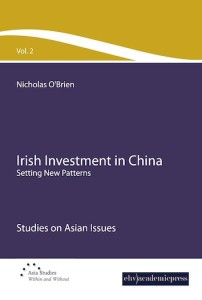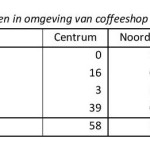Irish Investment in China. Setting New Patterns ~ Abstract & Acknowledgements
No comments yet Abstract
Abstract
According to the Industrial Development Path Hypothesis (Dunning, 1981, 1986, 2001), outward Foreign Direct Investment is symptomatic of successful advanced industrialised economies. After a decade of unprecedented growth and prosperity from the mid-1990s, the Irish economy had reached a sufficient level of maturity that Irish firms were beginning to seek new markets in which to invest.
Barry et al’s (2003) authoritative work states that Irish outward FDI is disproportionately horizontal and oriented towards non-internationally traded sectors. This study was based exclusively on developed economies – Europe and North America, rather than developing economies or emerging markets. Such countries have not yet featured in the literature on outward Irish FDI. Given the importance of China as the largest global recipient of inward FDI, this book explores the nature of Irish FDI into China and specifically considers whether Barry et al’s model on Irish outward FDI holds for current Irish investment into China. This consideration will be conducted within the framework of Dunning’s Eclectic Paradigm, which contends that locational, ownership and internalisation advantages must exist for successful investment to occur.
While the level of Irish FDI into China is limited, research was conducted among all Irish firms which had invested in China (this research was conducted in 2006 and 2007). It was found that the nature and scope of Irish FDI into China differs from earlier patterns identified by Barry et al in the case of developed economies. Irish FDI into China is found to be predominately in the traded sector and can be described as only marginally horizontal.
In order to gain a deeper understanding of this development, the locational advantages and disadvantages which China poses are explored. The principal locational advantage is identified as market opportunity. Perhaps the most significant challenge facing investors is the risk to the protection of intellectual property rights (IPR). It is argued that this has the potential to affect the ownership advantage which Irish MNEs possess. Accordingly, there is a need to utilise internalisation advantage to protect IPR. Consideration is given to the role which the state can play in the provision of ‘soft supports’ for investors, primarily through the provision of market information.
Acknowledgements
The experience and insight offered by senior business executives offered a valuable and unique perspective on the world of private sector decision making. I am particularly grateful for the level of access and openness which I received. I would also like to thank senior staff in the Irish Government state agencies, Enterprise Ireland and the Industrial Development Agency for the valuable information and assistance provided. Without the openness and positive disposition of my interviewees, this research would not have been possible.
I wish to acknowledge the support and encouragement of my doctoral thesis supervisors Dr. Andrew Baker, Queen’s University Belfast and Dr. Michael Mulreany, Institute of Public Administration, Dublin. Their guidance and support were particularly important and insightful in helping me develop my line of argumentation. I should also like to acknowledge the support of the Department of Foreign Affairs for their positive attitude and support towards continuing professional education. A special word of thanks is due to the staff at the Department’s library, who aided my search for literature in a professional and helpful manner.
Finally, I should like to thank my wife Caroline who, on a snowy afternoon in Monscheau, Germany, suggested that I pursue a doctorate. Together with my daughters, Ciara and Niamh, she provided support, encouragement and especially the time to facilitate my studies.
Nicolas O’ Brien
—
For anybody with an interest in investing in or doing business in China, Nicholas O’Brien’s scholarly and informative book should be essential reading. Given the growing importance of China in global trade this is a very timely work which I highly commend.
Dick Spring, former Deputy Prime Minister and Foreign Minister of Ireland
This book identifies clear differences between Irish investment into China and that into traditional FDI locations such as the US and UK. It is an authoritative work, particularly in view of the author’s experience as a senior diplomat in China and offers clear conclusions as to the benefits and challenges of investing in China”.
Dr. Michael B. Murphy, President, UCC
This is a must read for Irish people considering investment in China. The author discusses why considerable challenges still remain. A very comprehensive insight into informed investment in China.
Donal O’Callaghan, former Chairperson, Ireland China Association
Dr Nicholas O’Brien worked at the coalface of the transformation of modern China during his four years as Irish Consul General in Shanghai. His work is a testament to intelligent observation and the insight that experienced observers can have. The sideline sometimes brings more perspective than those on the pitch have. His book greatly expands our store of knowledge on this subject in an accessible manner with lucid division of what he is discussing and crystal clear conclusions.
Richard Barrett, Treasury Holdings
This admirable book charts the experience of Irish investors in China and has valuable pointers and good advice for business investors planning to invest in the Middle Kingdom. Given the author’s wide international experience, in particular his unique insight as Irish Consul General in Shanghai, this book is an authoritative source on the challenges and opportunities which China offers.
Dr T P Hardiman, Asia Europe Business Forum
You May Also Like
Comments
Leave a Reply








